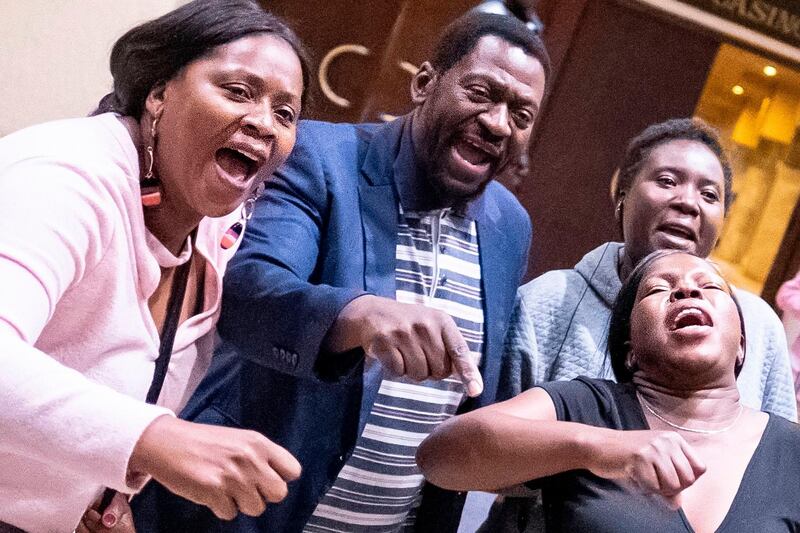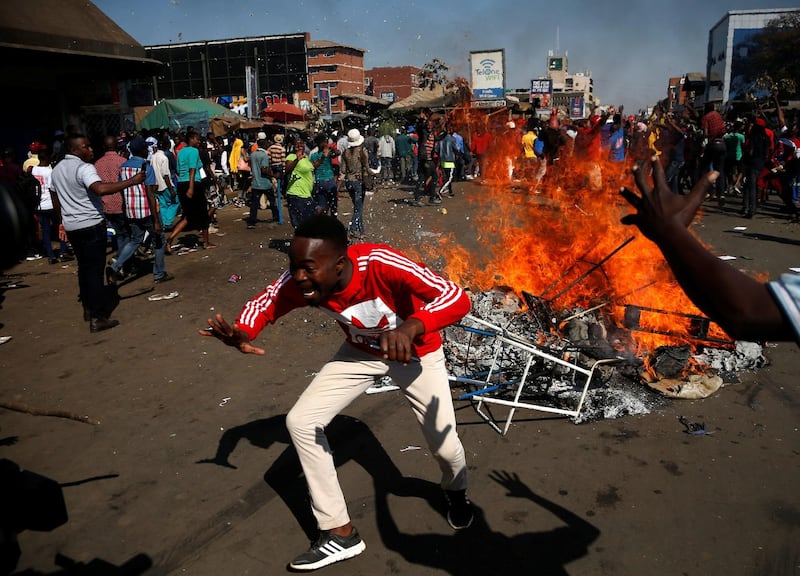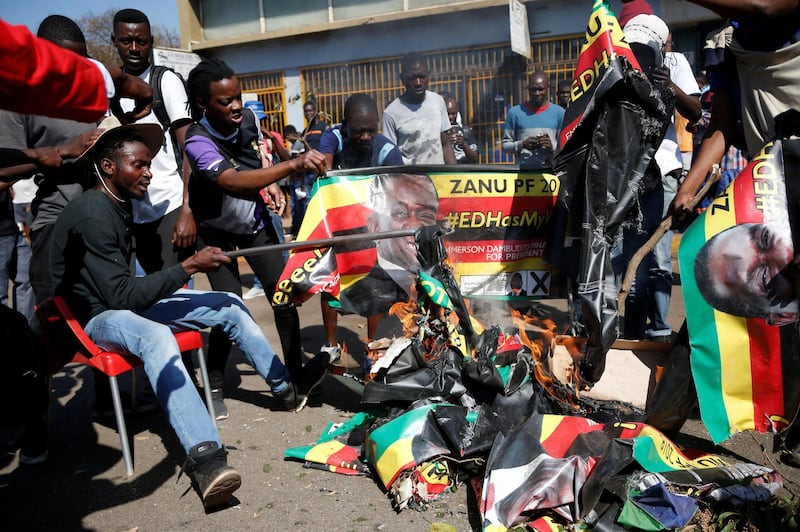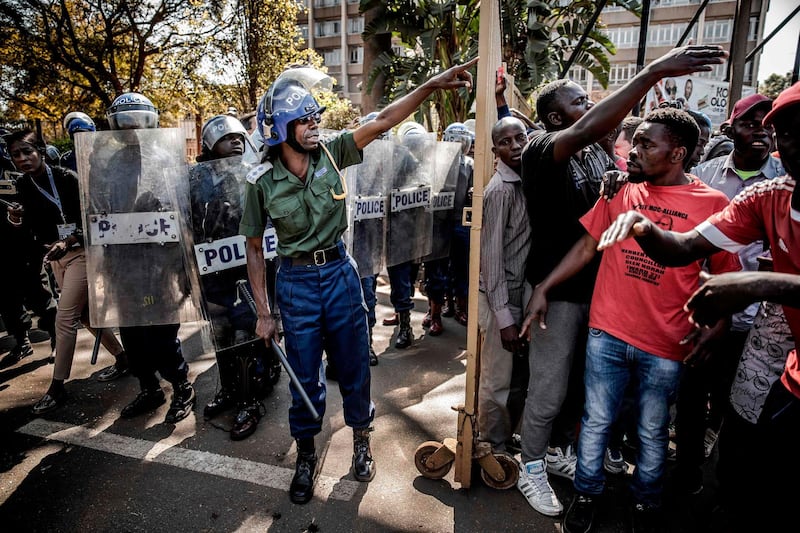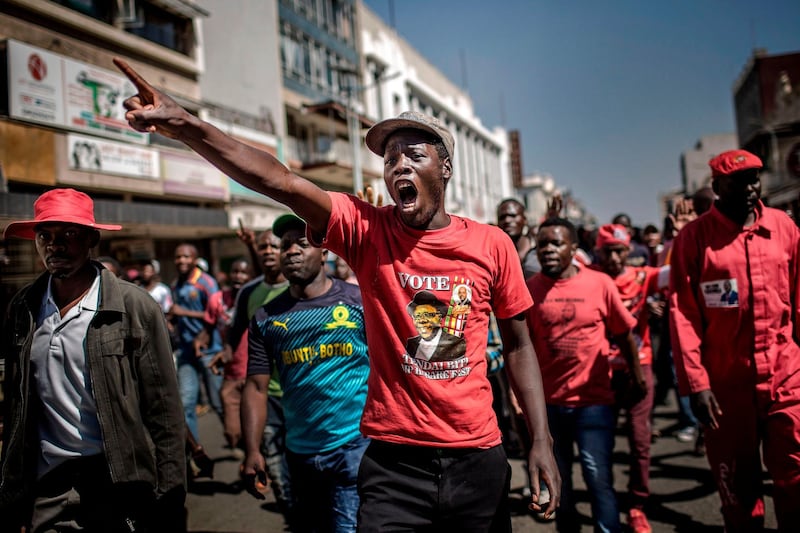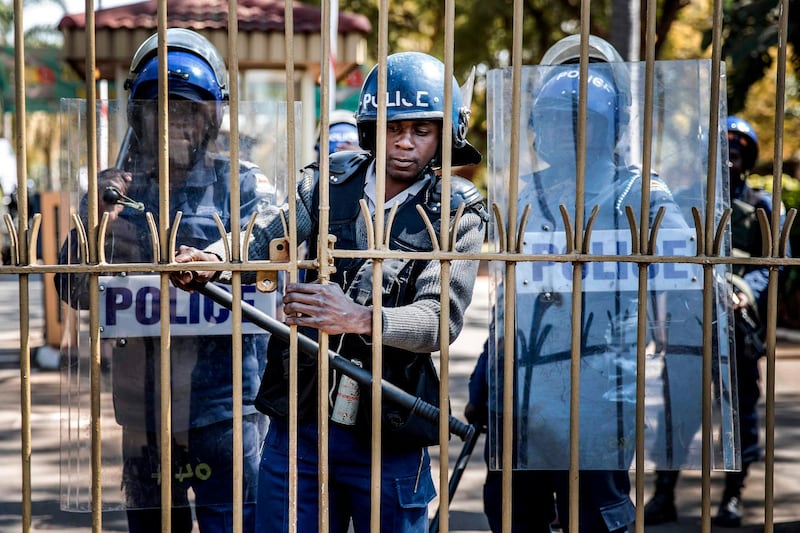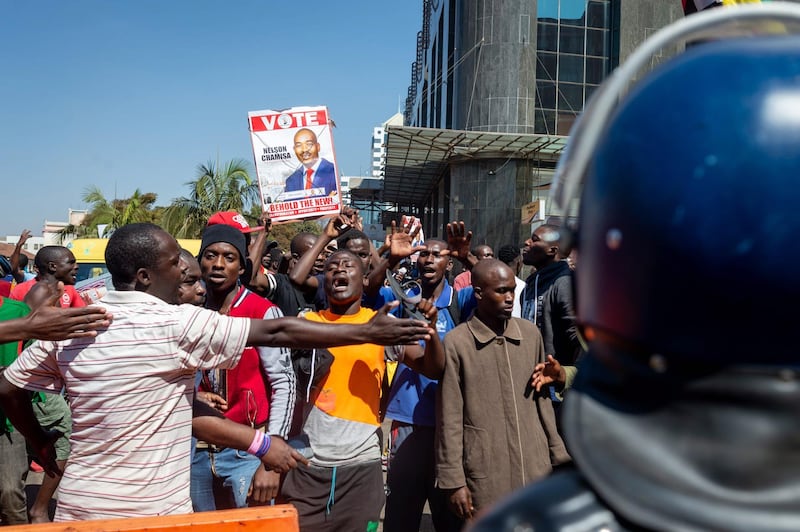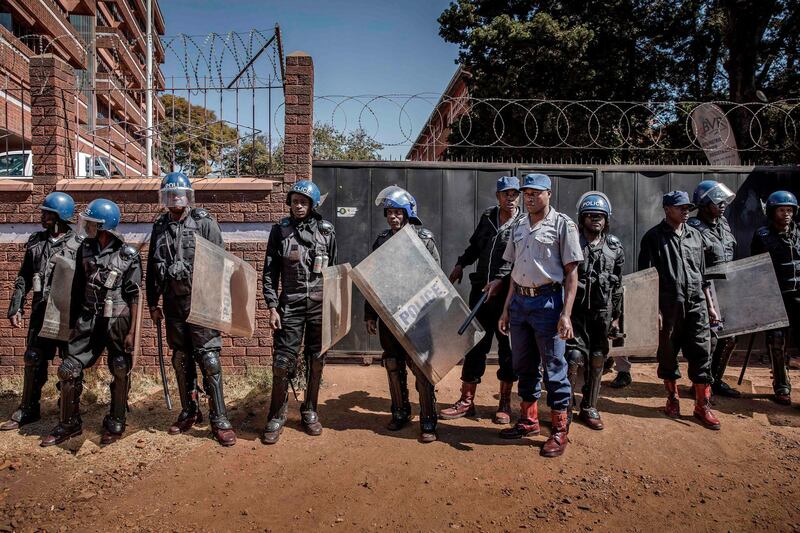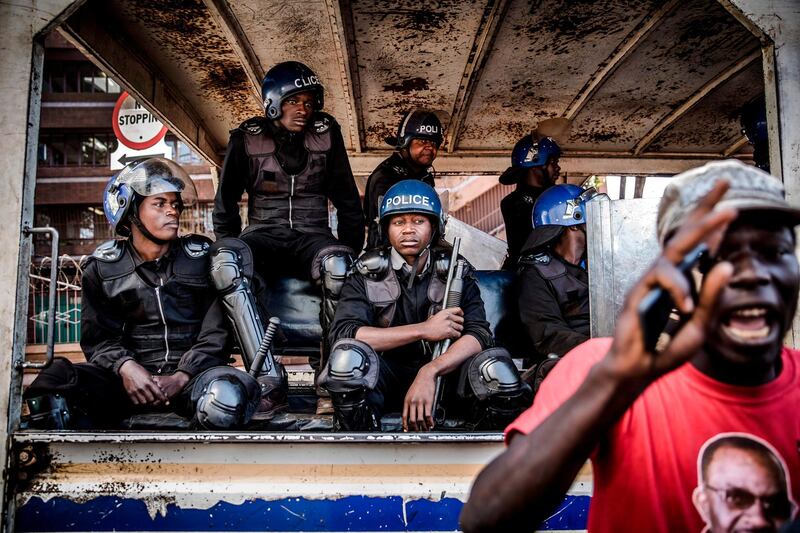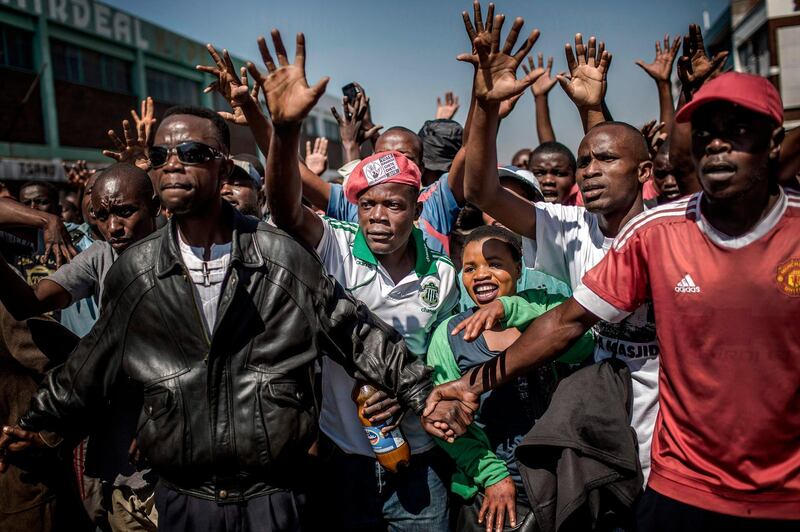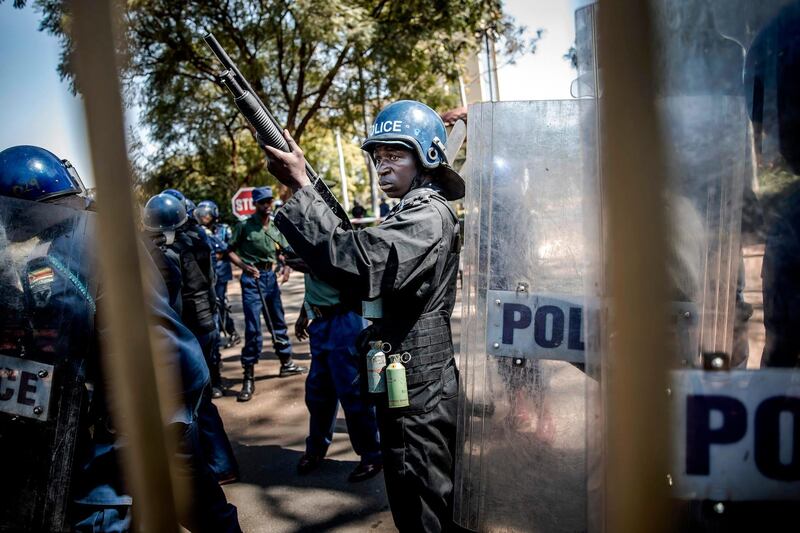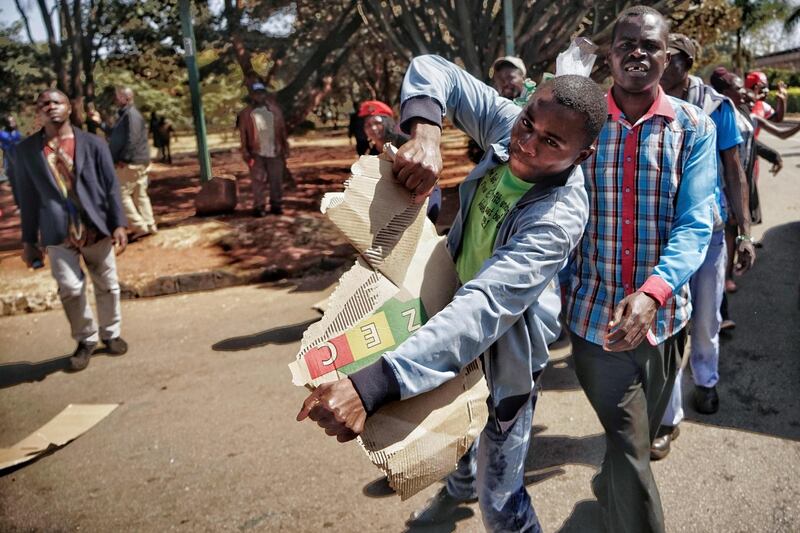Zimbabwe’s president Emmerson Mnangagwa won election Friday with just over 50 percent of the ballots as the ruling party maintained control of the government in the first vote since the fall of long-time leader Robert Mugabe.
The opposition is almost certain to challenge the results in the courts or in the streets. Mr Mnangagwa received 50.8 percent of the vote while main opposition challenger Nelson Chamisa received 44.3 percent.
While election day was peaceful in a break from the past, deadly violence on Wednesday against people protesting alleged vote-rigging reminded many Zimbabweans of the decades of military-backed repression under Mugabe.
Western election observers who were banned in previous votes have expressed concern at the military’s “excessive” force in the capital, Harare. Their assessments of the election are crucial to the lifting of international sanctions on a country whose economy collapsed years ago.
Shortly before the election commission’s announcement, a man who said he was the chief agent with Mr Chamisa’s opposition alliance claimed that they had not signed the election results and rejected them. Police asked him to step aside.
Commission chair Priscilla Chigumba urged the country to “move on” with the hopeful spirit of election day and beyond the “blemishes” of Wednesday’s chaos: “May God bless this nation and its people.”
Earlier Thursday, the ruling party and the main opposition group both claimed victory, deepening a political crisis that was worsened by Wednesday’s violence in Harare as the military swept in with gunfire to disperse opposition supporters alleging vote-rigging.
The death toll from rose to six, with 14 injured, police said, and 18 people were arrested at the offices of the main opposition party amid tensions over a vote that was supposed to restore trust in Zimbabwe after decades of Mugabe’s rule.
While Mr Mnangagwa and the ruling party accused the opposition of inciting the violence, the opposition, human rights activists and international election observers condemned the “excessive” force used against protesters and appealed to all sides to exercise restraint.
The international election observers also urged the commission to reveal the presidential results as soon as possible, saying delays would increase speculation about vote-rigging.
Police raided the headquarters of Mr Chamisa’s Movement for Democratic Change party while a lawyers’ group said he was being investigated for allegedly inciting violence. He and several others are suspected of the crimes of “possession of dangerous weapons” and “public violence,” according to a copy of a search warrant seen by The Associated Press.
Mr Chamisa, however, said police seized computers and were looking for what he called evidence of vote-rigging. The evidence already had been moved to a “safe house,” he said.
Mr Mnangagwa called for an “independent investigation” into Wednesday’s violence, saying those responsible “should be identified and brought to justice.”
_______________
Read more:
[ Army clear streets as Zimbabwe awaits election results ]
[ Only with true democracy can Zimbabwe move past the Mugabe years ]
[ Deadly riots rock Zimbabwe’s capital as vote results delayed ]
_______________
Mr Mnangagwa was a longtime Mugabe confidante before his firing in November led his allies in the military to step in and push Mugabe to resign after 37 years in power. Thousands of jubilant Zimbabweans celebrated in the streets of Harare, greeting the military with selfies and cheers.
Since taking office, the 75-year-old Mnangagwa has tried to recast himself as a voice of reform, declaring that Zimbabwe was “open for business” and inviting long-banned Western election observers to observe Monday’s vote, which he pledged would be free and fair.
A credible election after past votes were marred by violence against the opposition and alleged irregularities is crucial for the lifting of international sanctions and for the badly needed foreign investment to help Zimbabwe’s long-collapsed economy revive. Mr Mnangagwa himself remains under US sanctions.
While Monday’s election has been widely judged as peaceful with a high turnout, the deadly violence that erupted on Wednesday brought back chilly memories of decades of repression under Mr Mugabe.
It was a reminder, as opposition leader Mr Chamisa declared Thursday, that “‘We have removed Mugabe but not Mugabe-ism.”
The military deployment was the first time that soldiers had appeared in the streets of the capital since Mr Mugabe’s resignation. Some Harare residents expressed frustration and exhaustion at the dramatic change from November’s exuberant expression of hope to the current tensions.
“We are a peaceful nation,” said 29-year-old Sifas Gavanga of the latest chaos. “We don’t deserve the death we saw.”
